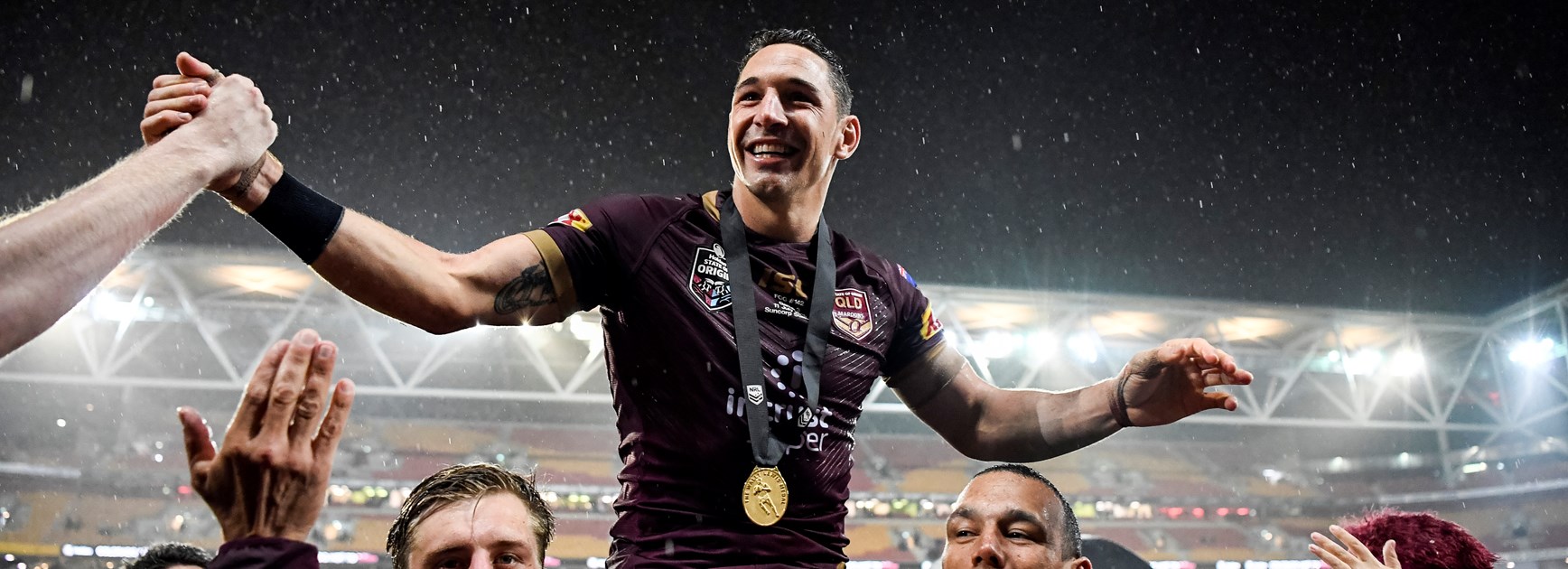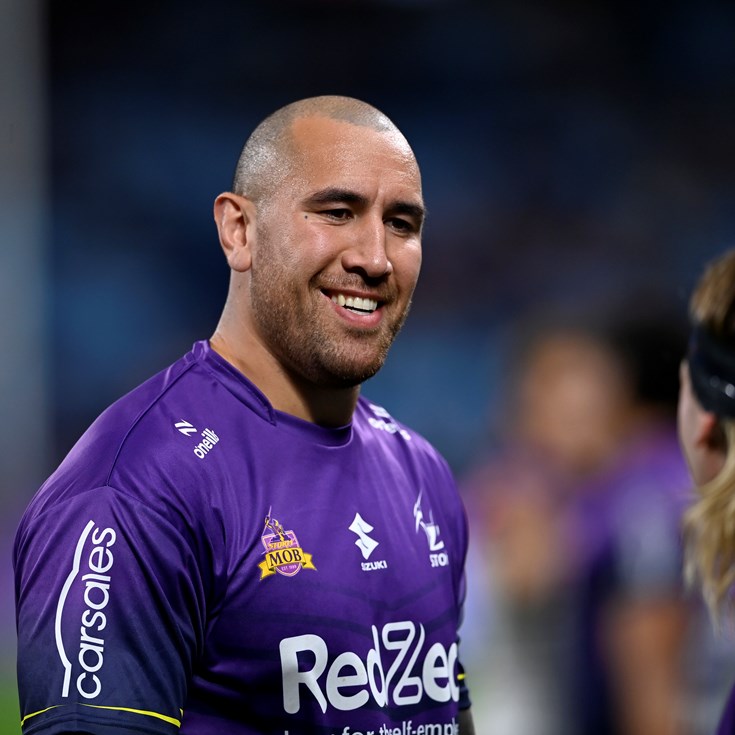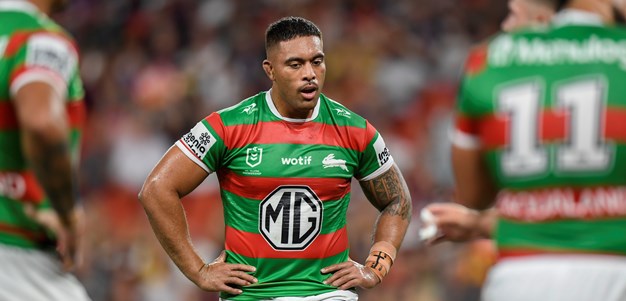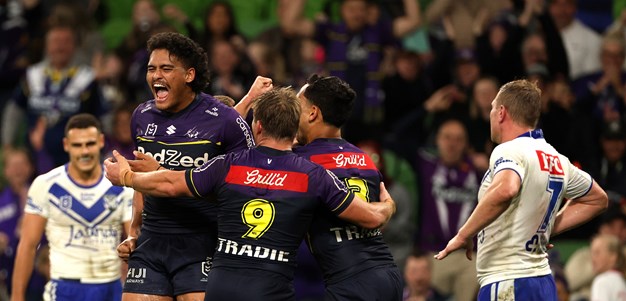
Pound for pound, Billy Slater can lay claim to being arguably the best and toughest player of the modern era.
That the Australian, Queensland and Melbourne superstar's place is among the best is beyond dispute.
Any tribute to Slater will acknowledge his lightning speed, the amount of ground he covers in each match, his awareness to chime into an attack, his organisational skills behind the defensive line and the fact he has saved almost as many tries as he has saved.
Yet of all the superlatives used to describe Slater, toughness deserves to be near the top of the list as he has played through pain and worked incredibly hard to overcome injuries that few other players would have.
This was typified by his determination to recover from what had initially been diagnosed as a tournament-ending knee injury during the 2013 World Cup and play what captain Cameron Smith described as the best performance of his long-time teammate's career in the final at Old Trafford.
The way Slater's knee ballooned after he was taken from the field during Australia's quarter-final win in Wales led to him being immediately ruled out but he spent the next two weeks hooked up to an ice and compression machined for up to eight hours per day.
Will Slater become an Immortal?
Barely leaving his hotel room, Slater underwent around the clock treatment from Kangaroos physiotherapist Tony Ayoub, to whom he later gave his World Cup medal, and had just one light training session before scoring two tries in a five-star performance against New Zealand.
He later underwent surgery that delayed his start to the 2014 season and has suffered numerous other injuries after being targeted by opposition defences seeking to nullify his attacking ability from kicks.
His willingess to run the ball into the teeth of chasing defences resulted in Slater also suffering a knee injury during the second match of the 2012 State of Origin series that caused him to miss the decider.
The injury troubled him for the remainder of the season but Slater continued to play and he starred in the Storm's first Telstra Premiership win after the club's salary cap scandal against Canterbury.
He also had to overcome a shoulder injury which plagued him for 18 months and threatened his career before winning the Clive Churchill Medal as player of the match in the 2017 grand final and regaining his place in the Australian team for the 2017 World Cup.
The injury initially occurred early in the 2015 season but Slater battled through until Origin II at the MCG, where he was a crowd favourite and major drawcard, before undergoing season ending surgery.
After returning in Round 1 of the 2016 season, Slater suffered a recurrence of the injury and was sidelined for more than 12 months in a blow which tested his mental strength.
Slater will bow out as the second highest tryscorer in premiership history behind Ken Irvine (212) after scoring 187 tries so far in a 16 year career in which he not only changed the role of the modern day fullback but the way the game is played.
Slater's ability on kick returns led to the introduction of the seven-tackle rule as opposition playmakers were kicking the ball dead to concede a 20-metre re-start rather than risk giving it to him.
Slater is at least the equal of the game's greatest fullbacks, Clive Churchill and Graeme Langlands, and is expected to join them as Immortals in either 2026 or 2030 under the current eligibility rules for the NRL's highest honour.
The 35-year-old, who burst onto the scene as an 80kg trialist at the 2003 World Sevens in Sydney, has won every other award the game has to offer during a career spanning 319 NRL matches for the Storm, 30 Tests for the Kangaroos and 31 Origins for the Maroons – the last of which he was captain.
Slater's set of six moments
Smith and Darren Lockyer are the only other players to have achieved the 300/30 treble for their club, state and country.
Along the way, Slater has won two Clive Churchill Medals as player of the match in the 2009 and 2017 grand finals, the 2008 Golden Boot award as the world's best player, the 2011 Dally M Medal as NRL player of the year and was awarded the Wally Lewis Medal as Origin player of the series in 2010 and 2018.
He has also been a key player in the greatest club and representative teams this century after helping Melbourne to grand final triumphs in 2007, 2009, 2012 and 2017 – the first two later being stripped for salary cap breaches – Queensland to 11 Origin series wins between 2006 and 2017.
Slater, who has also played in three World Cups and was a member of winning Australian teams in 2013 and 2017, hopes to finish his spectacular career with another premiership on September 30 at ANZ Stadium.




